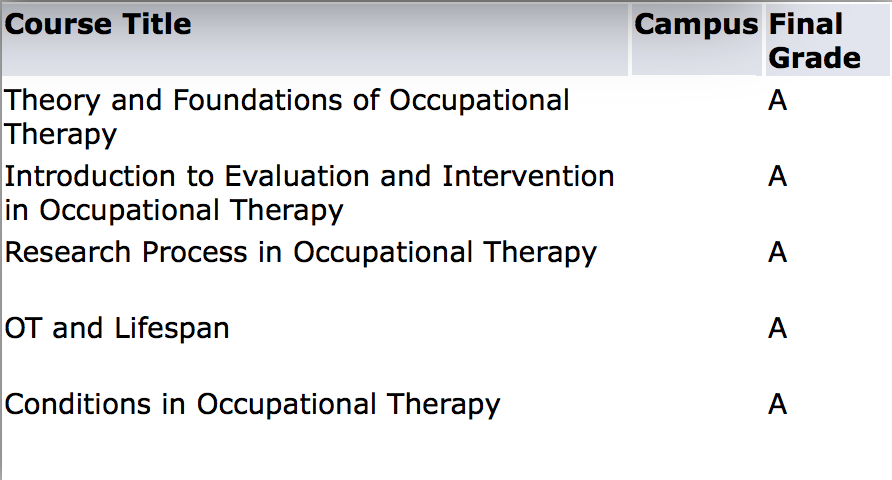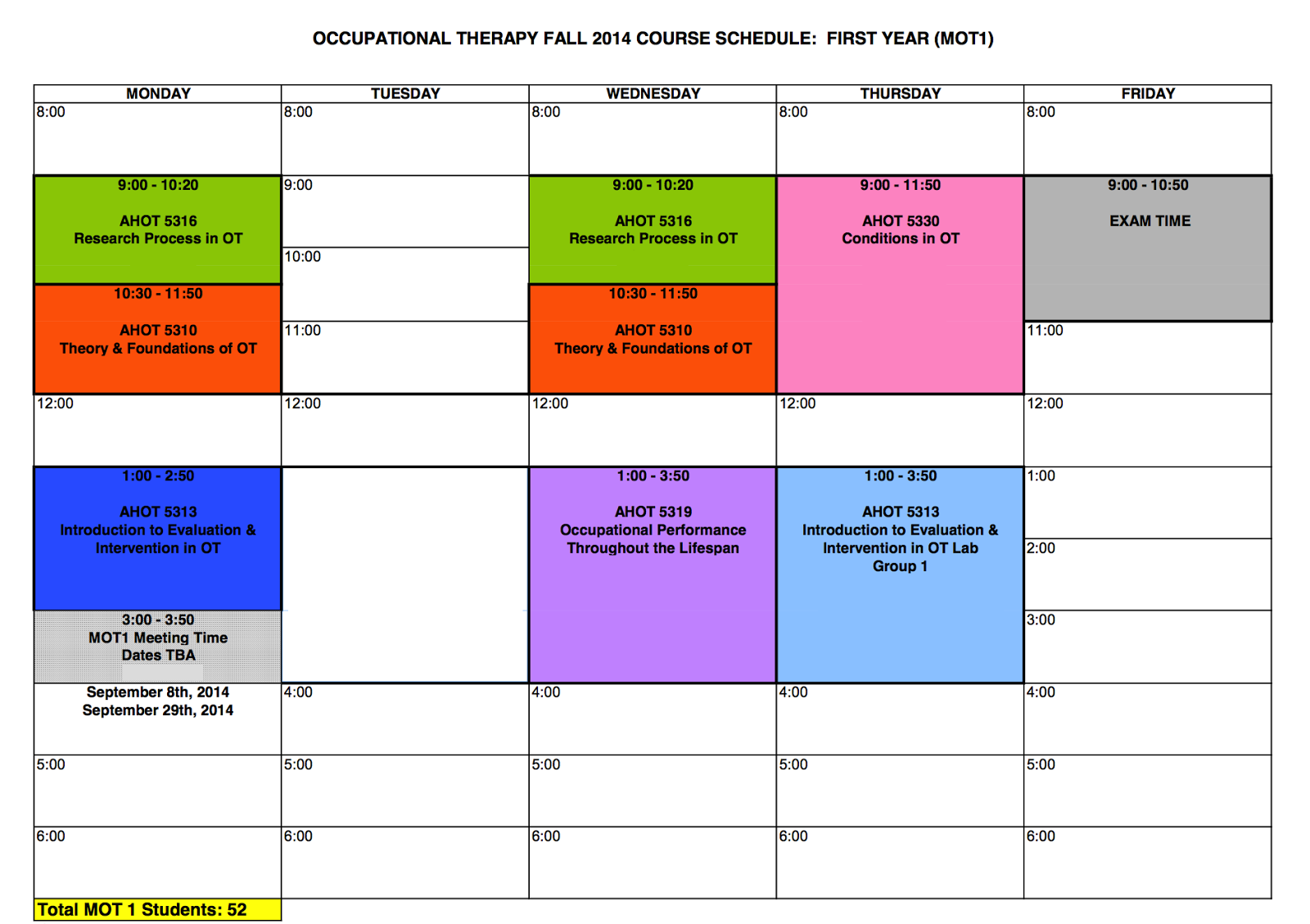Last year I posted a blog called "
Note Taking during Observation & Bridge Burning!" Great blog, in my opinion, but it's missing something - something important. Something I did not realize it was missing until this semester
(Spring 2015).
During my observation, I focused soooooo much on the condition the client had, what the therapist did with the client, tips and tricks, all that...but the one thing I forgot to pay attention to was the interpersonal interaction between the client and therapist, the therapist and parents, and the therapist and his/her team. I have over 45 pages of notes outlining my clinical observations and NOT ONE talks about anything of the such UNLESS there was something that the therapist did that I did not agree with.
I did not take the time to note any of the positive, beneficial, or key interactions. Nothing that the therapist said to motivate their client, nothing that the therapist did to support their client when they burst into tears, nothing that the therapist asked to try to understand their patient better, nothing that the therapist did when they could tell their patient was getting hostile, nothing about how the therapist approached his/her colleagues (e.g., other OTs, PTs, nurses, doctors) when he/she had questions, nothing that the therapist expressed when interacting with caregivers...just NOTHING I tell you and that's so unfortunate.
Taking note of the conditions you see and of the specific therapy techniques and activities the therapist does with the client is important, but the interpersonal interactions that occur within the setting is just as important and it's something I failed to attend to during my observation. I won't say I was focusing on all the wrong things, because I wasn't...I actually learned a lot...but what I will say is that the lens I had on was too narrow to see the big picture at the time. And now, as my first year of OT school is coming to a close it is something I regret. But why?, you may ask.
Well, interacting with others on certain levels is not something that comes natural to me and it's a long story as to why. I communicate well with others when it just happens and I'm not putting to much thought into and also when I'm one-on-one with someone. However, lately, I feel like I have to be so much more intentional and when I'm intentional it's just so unnatural, especially if I'm with another person and especially if I have to follow a specific protocol (i.e., that required by an assessment). For example, we have been going to an adult day center to interview some of the members there so we can fill out case maps, do some assessments, and eventually create a treatment plan. When I tell you it's like I couldn't improvise, I couldn't think, I didn't know what to say, it was awkward, and I couldn't play off the dynamics of my group member...I am not joking nor exaggerating. I got so frustrated that day. Plus, the way our seats were positioned was conducive for my group member to interact with the client, but not for me because I was off to the side
(not that I wanted to be, it just happened with how my partner sat). Long story short, it was a mess. I think it would have helped if my partner and I would have met prior to discuss how we were going to execute obtaining the information we needed to, but with our schedules so hectic it just wasn't possible. We should be able to meet before we go back again
(this coming Thursday) so hopefully my experience will be much better this time around. I talked to my professor about it and she was able to give me some advice so we will see. If I have time, I'll let ya'll know how it goes.
Anyways, back to the point. The point is that I wish I would have took the time to acknowledge how the therapists interacted with others, how they improvised etc. etc. because now I'm faced with situations that are unnatural for me and I have nothing really to go off of but words. Words are great, but I learn best by seeing firsthand. So all-in-all, my advice to anyone who may struggle with interpersonal interactions, are introverted, or just want to see the bigger picture is...
don't just focus on conditions and physical interactions, also take notice of how the therapist is interacting with those around them. Hopefully, this will help you not to struggle as much as I have been. I only gave you one example, but I have encountered a handful of situations that were just a big fat mess.













































